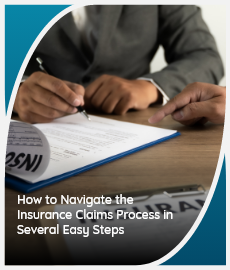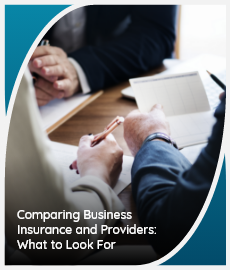Strategies to Reduce Commercial Insurance Premiums
Posted on August 12, 2024 | by | Posted in Insurance


When running a business, it is crucial to keep costs as low as possible without jeopardising operations or becoming susceptible to the future’s uncertainties. Commercial insurance is one of the critical ingredients for business success, but it can sometimes come with high premiums, impacting our cash flow. However, it is possible to ensure you are paying the best possible premiums while still having fully comprehensive coverage. Today, Matrix Insurance is going to share some tips on how to reduce premiums without impacting your commercial insurance coverage.
9 Ways to Get Your Premiums as Low as Possible Without Impacting Your Coverage
Though it sounds too good to be true, it is entirely possible to reduce your premiums while maintaining optimal coverage. However, it does require some additional work. Insurance brokers are experts in identifying areas of improvement and coming up with a solution, so if you need to lower your business costs, it might be worth consulting a professional for maximum efficiency. Here is a list of nine ways to keep on top of commercial insurance premiums.
Conduct a Comprehensive Risk Assessment – It isn’t unusual to pay over the odds for commercial business insurance without a comprehensive risk assessment. Risk assessments can help lower premiums in two ways. Firstly, they help an insurance company understand the intricate details of an industry and its operations. If they are able to determine the specific risks related to a business, they can design a better policy and charge accurate premiums. Additionally, risk assessments allow us to identify areas where we can mitigate risks and lower them even more.
Invest in Loss-Prevention Methods – Implementing these strategies demonstrates that a business is dedicated to risk management. They can lower risks, which, in turn, prevents the frequency of claims and ultimately lowers premiums. Every time we are proactive in this area, we have the potential to save.
Regularly Review Coverage for Optimisation – There are three primary benefits to regularly reviewing a policy to ensure optimisation is maintained. First of all, from the moment a business begins to operate, it is constantly growing and changing. As its size and success increase, so do its insurance needs. Additionally, it is crucial to understand that a policy taken out years ago might not have a significant payout in the current economic climate. Finally, reviewing an insurance policy and looking at competitors makes it possible to source better deals. All of the above have a massive potential to ensure premiums remain as low as possible while having adequate coverage.


Use a Commercial Insurance Broker – Using a commercial insurance broker can give you access to policies and prices you’re unlikely to find anywhere else. Professional brokers have a plethora of industry knowledge and access to hundreds of insurance companies, significantly increasing your chances of getting the perfect deal. Having an expert by your side makes it possible to receive a completely tailored service while they navigate you through all the complexities of commercial insurance policies to acquire terms and premiums that align with the needs and limitations of your business.
Annually Compare Rates – The insurance market regularly fluctuates, so taking the time to compare competitors’ rates annually often results in finding more suitable premiums while maintaining optimal coverage. Depending on the insurance requirements of the business, this can lead to substantial yearly savings without needing to compromise coverage.
Opt for a Comprehensive Package – One mistake many make with insurance is having them span across multiple insurers. However, most insurance companies can consolidate your policies to create a comprehensive package that covers all possibilities. Not only does this significantly reduce premiums, but it also makes it easier to ensure that all the terms and conditions in the policy align with your individual needs and that it will pay out if it has to. Furthermore, as well as saving potential, dealing with one insurer makes claiming a straightforward process.
Review Employee Classifications – When purchasing commercial coverage, one vital aspect to make sure the insurance will pay out accordingly is determining appropriate workers’ compensation premiums. It is essential to ensure all employees are classified correctly, as misclassification can lead to overpayment or underpayment of premiums. If your business is evolving, it is likely that the classification of employees may change regularly, so staying on top of this keeps costs accurate and coverage appropriate.
Leverage Trade or professional organisations – leveraging trade associations or professional organisations can be highly beneficial. Often, they have access to discounted insurance rates, unique benefits, and comprehensive coverage options. Teaming up with these groups can massively reduce insurance costs and provide tremendous networking opportunities.
Avoid Underinsuring Your Business – Something that many do while trying to reduce their outgoings is leave themselves underinsured. This fatal move can be a significant risk, as the business might not receive compensation in the event of a claim. It is essential to insure a business against all possible outcomes, securing your finances through difficult times. Adequate insurance will protect all business assets, making it one of the most important aspects of running a successful business.
Do You Need to Lower Your Insurance Premiums?
Navigating the world of insurance is a daunting task for many. Often, making sure our insurance coverage is adequate and premiums are reduced as much as possible requires a tremendous amount of time and reading through the paperwork. This is why most businesses opt to work with a trusted advisor who is qualified in insurance brokering. With an expert by your side, you are much more likely to receive the best possible results to safeguard your business and finances.
If you would like professional guidance on your current insurance policies or feel your coverage isn’t enough for your business, contact Matrix Insurance today. We are a team of qualified experts in insurance brokering dedicated to guiding clients toward financial success. Partnering with us is one step you can take towards reaching your business aspirations. So, join us for a free consultation to find out how we can improve your commercial insurance situation.

















